- Home
- About
-
Services
- Therapy
-
Eating Disorder Trainings
>
- Clinical Approaches To Treating Body Image Issues
- Clinical Approaches To Treating Bulimia & Binge Eating Disorder
- Finding Freedom From Binge Eating
- Finding Freedom From Anorexia
- Supporting A Loved One With An Eating Disorder
- Eating Disorder Recovery Road Map
- Healing From Body Hate And Practicing Self-Compassion
- Common Questions
- Blog
- Press
- Contact
|
Healthy living and the concept of “healthy eating” appears to be our new cultural fixation. We are constantly flooded with articles and advertisements consisting of elaborate juices, recipes, and lists of super foods, that all claim to be able to instill us with optimal health. So what on earth does it mean to “eat healthy?” There are many different camps that have opposing viewpoints as to what constitutes “healthy eating.” Some people have jumped on the “I eat only organic” bandwagon, whereas others are fixated on the concept of “clean eating,” and still others promote the “whole 30” diet with an almost religious zeal. The first problem that I have with the idea of “healthy eating” is that often it is simply just a more socially acceptable way for people to attempt to control their weight by manipulating their food choices. Many people I know who speak about trying to “eat healthy,”paradoxically practice other habits (such as smoking, tanning, and excessive drinking), which demonstrate that they may not be as “health conscious” as they are attempting to appear. Saying that they are simply trying to “eat healthy” is a way for some people to (perhaps even unconsciously) justify what may become restrictive or rigid eating habits, and could even serve to mask the development of disordered eating or eating disorders. Research indicates that diets “do not work” in regards to maintaining weight-loss in the long term. Further, labeling your diet as “healthy eating” or a “lifestyle change,” does not change the fact that we are simply not able to control our weight in the way that the “health and wellness” industry wants us to believe is possible. Additionally, even if we could control our weight (which the majority of us cannot do long-term), we cannot control other's opinions of us or our overall sense of happiness through our weight. People desire to be "thin" because of what they think that being "thin" will bring them. But the reality is that you can find health, happiness, and love-at any size. Further, it’s been shown through research that shaming someone for their body size results in many poor health outcomes-and may even be deadly. So, when people are shaming someone “in the name of health,” not only is this promoting poorer health outcomes, it’s also a form of oppression towards those in higher weight bodies. Black and White Mentality Around Food Saying that you are trying to “eat healthy,” indicates that there are some foods that are “healthy” and other foods that are “unhealthy.” This kind of black-and-white mentality surrounding food sets people up for disordered eating habits. For instance, let’s say that you are “trying to eat healthy” and you decide to eat a brownie at a work function. If you have a black-and-white mindset surrounding food- this perceived “failure” could lead to you “falling off the wagon” and succumbing to a binge or over-eating episode. Additionally, food is inherently neutral and you are not a “bad” or “good” person based upon the type of food that you choose to eat. We need to take the concept of morality out of our food choices. I’ve had people reach out to me claiming that eating donuts or brownies will lead to death and disease. However, the reality is that we are all going to die one day. No amount of kale and carrots will protect you from that reality. Also, it’s all about “dosage.” If all you ate were kale and carrots, you’d become unhealthy. The same way, if all you ate was donuts you’d become unhealthy. Kale in very high does and water can actually both lead to poor health outcomes (thalamin poisoning and hyponatremia). Further, social relationships were the biggest predictor of longevity in a 75-year study conducted by Harvard, and disordered eating/eating disorders can severely limit relationships. Health Is Individualized Another big issue that I have with the concept of “healthy eating” is that health is completely context and person-specific. We’ve all seen the fear-mongering lists of “foods that you should never eat again" or "foods that are totally unhealthy.” These general statements as to what foods are “healthy” and “unhealthy” are completely ridiculous. As human beings we are completely different and unique, with different gut bacteria, histories, environments, genes, and tons of other biological and psychological variations. What may be “healthy” for one person may be “unhealthy” for another, therefore making any general statements that label a food group or specific food, as being “healthy” or “unhealthy” makes zero sense. For instance, for an individual who is obsessed with “low-carb eating,” rigid food rules, and compulsive exercise-the healthiest thing for them may be to eat a bag of potato chips for a snack. They may be nutritionally compromised as a result of their rigid food rules-and also may be struggling with their mental health as a result. Eating the potato chips may also help them in their journey towards making peace with food and neutralizing foods. Additionally, if they are deprived of carbohydrates-the chips could help to improve their health (as we know that carbohydrates are essential in regards to providing energy, serve as your bodies main fuel source, and help to improve digestion and heart health). Further, mental health is an important part of one's overall health. Ultimately, I don't care how much green juice you drink-if the thought of having dessert gives you anxiety-that is not mentally healthy. Matt Stone exemplified this point in his book entitled Diet Recovery 2, when he states, “Even with things that we can all intellectually agree is unhealthy, such as a meal at McDonald’s, there will be literally thousands of people that read this book who are freezing cold or haven’t slept through the night in years, or who are suffering from anxiety..And most of those health-conscious people wouldn’t DARE eat at McDonald’s. But to their surprise, they might find almost immediate relief from their health condition(s) if they were to go pig out of 2-3 double Cheeseburgers, an apple pie or two, and an ice cold Coke form none other than the infamous Mickey D’s. Why? Because the calorie-density, digestibility, and salt and sugar-healthy load of a McDonald’s meal is unparalleled. And for someone in a really low metabolic state, this can literally be the most therapeutic of all combinations." Stone continues," You might heal faster eating at McDonald's than trying to do it on organic, unrefined, wholesome, and nutritious food because such food is not as calorie-dense, has higher water content, has more fiber, and is just too filling and unexciting to foster the same level of calorie consumption. So the unknowns about what is and isn’t healthy for an individual at any given moment are so vast that they are beyond our ability to neatly file into categories of “good” and “bad.” Another example that I love to give is around the idea that the "healthy choice," also depends on the context of the situation. For instance, if I needed a snack to hold me over for a few hours, which would be "the healthier choice," a plate of broccoli or a bag of chips? The more optimal choice would be the chips because in that moment-the chips would give me carbs, fat, and energy, whereas the broccoli wouldn't give me adequate energy or nutrients to power me through my afternoon. Your Health Status Isn’t a Measure of Your Worth Further, health is not a moral imperative or a barometer of your worth. Many people have chronic diseases or illnesses, which cause them to “not be healthy,” and they are still valuable and worthy people. No matter what you weigh, the kind of food that you have eaten today, how much you exercised, or what your “health status is,” you are enough, just as you are. Jennifer Rollin, MSW, LCSW-C: is an eating disorder therapist in private practice in Rockville, Maryland. Jennifer specializes in helping teens and adults struggling with anorexia, binge eating disorder, and bulimia, and body image issues. Jennifer provides eating disorder therapy in Rockville, MD, easily accessible to individuals in Potomac, North Potomac, Bethesda, Olney, Germantown, and Washington D.C. Jennifer also offers virtual eating disorder recovery coaching to people worldwide. Connect with Jennifer through her website: www.jenniferrollin.com
4 Comments
When I decided that I wanted to hire someone to work with me in my practice, I received many applications and conducted a lot of interviews. After I interviewed, Hanna Kuyper, I knew immediately that she was the person who I wanted to hire. I asked her to do a "role-play" session with me and she completely knocked it out of the park! I almost offered her the position on the spot. Hanna is compassionate, smart, kind, and highly knowledgeable when it comes to helping people to recover from eating disorders and body image issues. I was so excited to do an interview with my amazing new contractor, Hanna Kuyper, eating disorder recovery coach, who works with people worldwide via video (Zoom). Jennifer: Tell me a little bit about yourself and what fueled your interest in helping people to recover from eating disorders? Hanna: Well, the most important roles in my life are as a mama and a wife. I have been married to my husband for four years and we have a sweet one year old. I am just finishing up my Master's degree in Counseling Psychology with a speciality in Eating Disorders and Body Image. I previously served on the board of the nonprofit, Body Revolution, dedicated to advocating for those with eating disorders. In 2015, I opened my own studio iamwell, a community dedicated to helping women create a healthy relationship with food and their bodies I also created and ran women's groups that focused on body image, self compassion and intuitive eating. I am beyond passionate about helping people to recover from eating disorders and body image issues. I personally struggled with an eating disorder and now being on other side and being recovered, I couldn’t imagine doing anything other than helping people in their journey. Feeling true freedom in my own life fuels me to help others experience the same. When you have struggled with an eating disorder for so long you don’t always know that there is a life outside of your disorder. However, there is SO much you get to experience as you leave your eating disorder behind and step into your true self. It is such an amazing thing. Jennifer: What would you say are some common misconceptions when it comes to eating disorders? Hanna: Through my time in this field and also struggling with my own eating disorder in the past, I have come to learn that there are a lot of misconceptions and lack of awareness when it comes to eating disorders. Some of the misconceptions I hear are 1. Eating Disorders only affect a certain population Eating Disorders can affect anyone from any population. I think we have this bias that only white, middle class, thin females are affected. When in reality it’s males, females, people in higher weight bodies, people involved in particular sports, individuals experiencing high levels of stress, adolescents, adults and everywhere in between. Eating disorders affect a wide range of individuals and you cannot determine that based on someone's appearance. 2. Eating Disorders aren’t serious There is still a lot of work to do in the community to educate on what Eating Disorders are and just how serious they are. Eating Disorders have the highest mortality rate over any other mental illness. They are more than a diet gone too far and more than telling someone to ‘just eat more’ or ‘just eat less’. Which brings me to my next point…… 3. It’s all about the food This is a tough one because although it is about the food, it’s also not about the food. There’s a strong relationship to trauma and the development of eating disorders as well as genetics, perfectionism and other personality traits. Eating disorders are complex and a lot of the time a coping mechanism for something much deeper that needs to be worked through. Jennifer: How would you describe your approach as an eating disorder recovery coach? Hanna: As a coach I am very action focused while still holding compassion for my clients. I tailor each session based on clients individual needs and enjoy setting goals and utilizing effective strategies. I create an atmosphere where clients can be vulnerable and feel safe to grow and challenge themselves. I like to be authentic and provide a space for my clients to do the same. Every person's journey is different but going through my own journey in the past allows me to walk alongside my clients with a compassionate heart knowing they have the ability to overcome this illness and fully recover. Jennifer: Do you subscribe to a health at every size approach? Hanna: I am a strong believer in health at every size. Unfortunately we have a stigma around body size and shape and think that thin=healthy and larger body=unhealthy. Health at every size encourages embracing body diversity and respecting the idea that we are all unique and different. It's also important to note that your body size says nothing about your worth or value as a person. Jennifer: For those who don't know about your role as an eating disorder recovery coach. What is eating disorder recovery coaching? Hanna: Eating disorder recovery coaching is a powerful added support to therapy (or may be appropriate as a stand-alone service for those who are struggling with disordered eating, body image issues, or are further along in their recovery). If a client is working with other professionals, I am happy to collaborate with them. Many individuals in recovery benefit from having more support than a once-a-week therapy session, and a recovery coach can be a great addition to a treatment team. Recovery coaching is present-focused and action-oriented. I love setting goals with clients and helping them to take steps in their recovery. When you work with me as an eating disorder recovery coach, it includes weekly video sessions via Zoom, as well as email support between sessions. This can be incredibly helpful for those who are struggling and in need of additional support. I love being an eating disorder recovery coach, because I am able to work with people all over the world! This helps me to reach people who might not have much access to support in their communities. Jennifer: What would you say are some of the biggest challenges and most rewarding aspects of your job? Hanna: My biggest challenge is that I want to change the world! Ha! I have so much passion for this area that I have to remind myself to take it one step at a time. There is so much education that needs to be done and so many more resources that need to be offered it could be an endless job. Being able to connect with like minded professionals that want to make a change and create a shift has been so fun and encouraging. There is no way I could answer what the most rewarding part of this job is because there are SO many. Having the honor to be able to walk alongside someone in their recovery journey is amazing. Seeing an individual gain their life back is incredible. I couldn’t imagine working in any other field. Jennifer: How is your life as a recovered person different from your life in an eating disorder? Hanna: There is so much freedom. I am able to explore who my authentic self is, what my beliefs are and what I value. My life is now full of things I truly value like family, relationships, connection, adventure and so much more, including good food! Jennifer: What is one piece of advice that you would give someone who is struggling in their recovery? Hanna: Allow yourself to go through the process. When I first started my recovery journey I thought that every slip up meant I had to start over again. It was exhausting and I felt like a failure. My (at the time boyfriend) now husband told me in one of my self pity moments that I was allowed to make mistakes. I was allowed to struggle. I was allowed to not be perfect. It sounds so simple but really giving yourself permission to go through the process is empowering. Often individuals who are struggling with an eating disorder have a tendency to think in black and white terms. Recovery is not black and white. Recovery is messy, complicated, confusing and sometimes exhausting. However, every day we show up we grow a little more. Eventually those small victories, the small growing pains, the small changes we don’t even see happen….they turn into recovery. Work with Hanna: Click here to learn more and to book a free 15 minute phone consultation. Follow Hanna on Instagram: hanna_kuyper Jennifer Rollin, MSW, LCSW-C: is an eating disorder therapist in private practice in Rockville, Maryland. Jennifer specializes in helping teens and adults struggling with anorexia, binge eating disorder, and bulimia, and body image issues. Jennifer provides eating disorder therapy in Rockville, MD, easily accessible to individuals in Potomac, North Potomac, Bethesda, Olney, Germantown, and Washington D.C. Jennifer also offers virtual eating disorder recovery coaching to people worldwide. Connect with Jennifer through her website: www.jenniferrollin.com
“I shouldn’t feel so anxious around food.” “This shouldn’t be so hard.” “It’s my fault that I developed an eating disorder.” “I’m just such a shallow person.” I often see clients struggling with feelings of shame around their eating disorders thoughts or behaviors. I’ve also had clients who express feeling like it was some of their own “choices,” which led them to develop an eating disorder. The reality is that I’ve never seen anyone successfully shame themselves into recovery from an eating disorder. Shame actually can cause people to be dishonest, disconnected, and to not reach out for support when they need it. Challenging Some Common Shame-Based Beliefs The antidote to shame is having the courage to be vulnerable. It’s having the strength to reach out to someone and say, “actually I’m not ok.” It’s also important to practice self-compassion, especially when self-critical or shame-based thoughts start to come up. The following is an example of how you can start to respond to your eating disorder thoughts, with more compassionate ones. It can be helpful to picture how you might respond to a friend or loved one who was struggling. Eating Disorder Thought: “I shouldn’t feel so anxious around food.” Compassionate Response: It’s perfectly understandable that I’m feeling anxious around food. I’m in recovery from an eating disorder and this is how mine manifests. How can I take the next pro recovery action anyways? Eating Disorder Thought: “This shouldn’t be so hard.” Compassionate Response: If recovery were easy, then my therapist and dietitian wouldn’t have jobs. Recovery is definitely tough, but it will get easier with time and practice. Eating Disorder Thought: “It’s my fault that I developed an eating disorder.” Compassionate Response: No one would choose to develop an eating disorder, they’re miserable. The same way that no one would choose to have cancer. However, recovery is a choice that I can keep making in each moment. Eating Disorder Thought: “I’m just such a shallow person.” Compassionate Response: If I were truly shallow, I wouldn’t feel so distressed about the fact that i'm fixating on weight. I’m not shallow, I’m someone who is in recovery from an eating disorder. It’s perfectly understandable that I’m having a tough time with body image, as this is one of my symptoms. What can I do to be kind to myself right now? Eating Disorder Thought: “I’m not even sick enough to have an eating disorder.” Compassionate Response: It doesn’t matter what someone weighs, whether they have “normal labs,” or medical complications, or how often they use behaviors. Everyone who is struggling with an unhealthy relationship to food and their body-is sick enough and deserves to get treatment. It’s Not Your Fault It’s not your fault that you developed an eating disorder. Eating disorders are mental illnesses that are caused by a combination of biopsychosocial factors, they are not choices. You are not “weak,” or a bad person for struggling. You are someone who is doing the best you can right now, with the coping strategies that you have. Reaching out for help when you are struggling is true courage. It takes incredible strength to say, “actually I’m not ok and I need support.” If you are struggling with feelings of shame around your eating disorder, you are not alone. The more that we can speak up about eating disorders, the more we can start to shatter the shame and stigma. I love working with people with eating disorders, because they are some of the most compassionate, intelligent, resilient, and brave people that I know. Jennifer Rollin, MSW, LCSW-C: is an eating disorder therapist in private practice in Rockville, Maryland. Jennifer specializes in helping teens and adults struggling with anorexia, binge eating disorder, and bulimia, and body image issues. Jennifer provides eating disorder therapy in Rockville, MD, easily accessible to individuals in Potomac, North Potomac, Bethesda, Olney, Germantown, and Washington D.C. Jennifer also offers virtual eating disorder recovery coaching to people worldwide. Connect with Jennifer through her website: www.jenniferrollin.com Community and rebuilding connections is a crucial part of eating disorder recovery. When someone is intensely struggling with an eating disorder, it often becomes their primary relationship. Thus, it’s so important that people in recovery build a sense of community and practice reaching out to people rather than turning to their eating disorder behaviors. I can’t think of a better place to find a powerful sense of community comprised of individuals in recovery, loved ones, treatment professionals and advocates than at a National Eating Disorders Association Conference. I was honored to serve on the Conference Committee for the 2018 National Eating Disorders Association (NEDA) Regional Conference at Drexel University in Philadelphia, PA. The following are just a few highlights from what ended up being an incredible day that was full of education, connection and hope for recovery. Forgotten Bodies The first talk I attended was entitled “Forgotten Bodies: The Importance of Intersectionality for The Evolution of Eating Disorder Treatment and Recovery,” which was presented by the Dr. Colleen Reichmann, Psy.d, and Ivy Felicia, CHHC. Dr. Reichmann and Felicia discussed the epidemic of fat-phobia in our culture and the ways in which this can impact eating disorder treatment and recovery. They also highlighted the importance of taking an intersectional approach and uplifting the voices of those in marginalized communities. “Diet culture is rooted in fat-phobia...EDs are (in part, as they also have biopsychosocial roots) triggered by diet culture...the two are inextricably connected. We need to address fat-phobia,” Reichmann said. Ivy Felicia powerfully stated that we need to “be committed to healing both the individual and the institution." How Do I know If Treatment Is Working? Next, I went to “How Do I know if Treatment Is Working?” which was presented by Sam Tryon, RD and Melinda Parisi Cummings MSEd, Phd. Tryon and Cummings discussed objective and subjective measures of treatment success. They highlighted the importance of recognizing that the road to recovery is “not linear,” and that often people in recovery “feel worse” initially before things start to feel better. It makes sense that someone’s anxiety might initially be much higher as they are relying less on their eating disorder behaviors; however, with time and practice they can learn more life-affirming coping strategies. Tryon discussed how eating disorders make people’s worlds very small and can make a simple event, such as going out to eat, an unpleasant, anxious, and disconnected experience. However, she shared that through recovery people can re-learn how to enjoy the experience of eating out and connecting with others. It was also great to hear a registered dietitian proclaiming the importance of “all foods” being able to fit into someone’s intake, including why pizza is both a delicious and nutritious option (it’s a calcium overload, plus it’s got a great combo of carbs, fat, and protein). Recovery Panel: Self-Care, Maintenance It was emotional for myself and many of the other audience members to listen to this panel which was moderated by Jennifer Kreatsoulas, PhD, RYT and featured Stacey Lorin Merkl, Nikisha Bolden, and Shalini Wickramatilake-Templeman. Merkl, Bolden, and Wickramatilake-Templeman courageously expressed their personal eating disorder recovery stories. Wickramatilake-Templeman shared how one year ago she was in Philadelphia attending residential treatment at The Renfrew Center and that she never could have imagined she’d be back to speak at the NEDA Conference. “Prior to going to residential treatment last year, I had struggled with an eating disorder for most of my life. Throughout all those years of struggling, my eating disorder was either invalidated, dismissed, or even encouraged by others because I didn’t fit the stereotype of what someone with an eating disorder is supposed to “look like.” During those many years with an ED I wish I had known, and I wish everyone around me had known, that EDs don’t look any particular way. We all deserve help if we’re struggling in any way at all, no matter what our bodies look like,” Wickramatilake-Templeman expressed. Wickramatilake-Templeman also gave a shout-out to her prior therapist who was seated in the audience, and teared up at the end of her speech. Nikisha Bolden bravely talked about the absence of her father in her life and how her mother's acceptance felt conditional. She also talked about how her self-worth was tied to her external accomplishments, which had a major impact on her. “My eating disorder served as a dumping ground for the pressures and anxieties in my life," Bolden shared. Bolden discussed her struggle and ultimately her path to being in solid recovery. Recovery Is Possible From the professionals talking about the practicalities and tips for treatment and recovery to the brave survivors sharing their story -- this conference had something for everyone. The conference also highlighted the importance of debunking the myth that you can tell who is struggling with an eating disorder based on what they “look like.” The reality is that eating disorders don’t discriminate. Eating disorders impact people of all body sizes, races, abilities, genders, socioeconomic statuses, sexual orientations, and ages. Everyone who is struggling with a difficult relationship to food and their body deserves to seek treatment and support. Freedom from an eating disorder is possible. The community of amazing people at NEDA proved that recovery, while difficult, is so worth it. Jennifer Rollin, MSW, LCSW-C: is an eating disorder therapist in private practice in Rockville, Maryland. Jennifer specializes in helping teens and adults struggling with anorexia, binge eating disorder, and bulimia, and body image issues. Jennifer provides eating disorder therapy in Rockville, MD, easily accessible to individuals in Potomac, North Potomac, Bethesda, Olney, Germantown, and Washington D.C. Jennifer offers eating disorder recovery coaching via Zoom to people worldwide. Connect with Jennifer through her website: www.jenniferrollin.com Check out Jennifer's on-demand eating disorder trainings here! The other day, a client and I were talking about how she struggles with the belief that she “doesn’t deserve to take up space.” I pointed out that even the way in which she had positioned herself on my couch, demonstrated her attempts to try to take up “as little space as possible.” Unfortunately, the belief that we need to try to “take up less space,” is a common one in our culture-particularly for women. While body image issues impact people of all genders, for the purpose of this post-I have chosen to highlight the idea of “taking up space” as it relates to women. The Ways Women Are Taught to Take Up Less Space From the time that many of us were small, we have been culturally conditioned to try to “take up less space.” The following are some examples:
Chimamanda Ngozi Adichie says, “We teach girls to shrink themselves, to make themselves smaller. We say to girls, you can have ambition, but not too much. You should aim to be successful, but not too successful. Otherwise, you would threaten the man. Because I am female, I am expected to aspire to marriage. I am expected to make my life choices always keeping in mind that marriage is the most important. Now marriage can be a source of joy and love and mutual support but why do we teach girls to aspire to marriage and we don’t teach boys the same?” Diet Culture and Shrinking Women There is a $60 billion diet industry, which makes profit off our belief that we aren’t “good enough.” Body-dissatisfaction is what helps diet companies continue to sell their products. Additionally, body image issues impact people of all genders. However, I think that particularly as women it’s important to note that a focus on these issues often keeps us from “playing big” in other areas of our lives. When women are fixed on dieting and attempting to change their bodies, they are not using their energy to change the world. It’s also interesting to note that diet culture and a fixation on thinness rose in prominence around the time that women began to gain more political rights in our society. You Are Not More Valuable If You Take Up Less Space For all of the women who have been taught that you need to try to take up less space. No matter what size your body is, there is absolutely nothing wrong with your body. There is something wrong with a society where we are taught that our value lies in shrinking. You deserve to:
You deserve to take up all of the space that you need in this world. Jennifer Rollin, MSW, LCSW-C: is an eating disorder therapist in private practice in Rockville, Maryland. Jennifer specializes in helping teens and adults struggling with anorexia, binge eating disorder, and bulimia, and body image issues. Jennifer provides eating disorder therapy in Rockville, MD, easily accessible to individuals in Potomac, North Potomac, Bethesda, Olney, Germantown, and Washington D.C. Jennifer offers eating disorder recovery coaching via Zoom to people worldwide. Check out Jennifer's on-demand eating disorder and body image trainings here! Pretty much anything in life that i've done which was worthwhile, involved a decent amount of fear. From facing my fear of public speaking (I have since spoken on the news and at a national eating disorders conference!) to starting my own private therapy practice-anytime I have stepped out of my comfort zone, I was initially afraid to do so. However, through my own personal and professional experiences, i've learned that sometimes feeling afraid is a sign that you are about to do something really brave. Fear and Eating Disorder Recovery Recovering from an eating disorder is all about stepping outside of your comfort zone, facing fears, and defying the voice of the eating disorder - time and time again. However, there may come a point, either in the early or later stages of recovery, when you decide that you no longer need to push or challenge yourself as much. Or you might find that you feel terrified of letting go of the "eating disorder rules," and you tell yourself that you should just "give up." The desire to stick to “what feels safe” is completely normal. Even for individuals who have not been affected by eating disorders, there is an impulse to stay with what is comfortable and familiar. A comfort zone may feel like a “safe” place to be, however no major growth ever happens there. To truly grow and strengthen your recovery, it is critical to continue to challenge yourself on a regular basis, whether it’s trying new restaurants, facing “fear or trigger foods,” being more flexible with exercise (or taking a complete break from it!), or surfing your urges to engage in eating disorder behaviors. Additionally, just because something feels "safe" or "comfortable," doesn't mean that it actually is. Your eating disorder will say whatever it needs to in order to keep itself alive. Using eating disorder behaviors may feel comfortable, however the reality is that this can be emotionally and physically dangerous-even deadly. In my work as a therapist helping people who are struggling with eating disorders, I express that the aim is to feel uncomfortable, but not unsafe. I help people to challenge themselves gradually in a way that is anxiety-provoking, yet doesn’t feel unmanageable. Thus, it can be helpful to start by pushing yourself out of your comfort zone in small and gradual steps. Feel The Fear And Take Action Anyway Often people avoid taking risks because they think that they need to wait until they feel confident enough to do so. However, the paradox of this is that you will only begin to feel less afraid and gain confidence by gradually exposing yourself to what you are afraid of Susan Jeffers, Ph.D., exemplifies this in her book entitled “Feel The Fear... And Do it Anyway” when she says, “I had grown up waiting for the fear to go away before I took any chances. When I am no longer afraid... then! For most of my life I had played the when/then game and it never worked... Fear of particular situations dissolved when I finally confronted them. The doing it comes before the fear goes away.” Rather than trying to get rid of your fear, keep in mind that it is normal and okay to feel afraid. Further, you can feel afraid and take pro-recovery actions anyway. The less that you give into the voice of fear and allow it to control your actions, the more empowered and free you will feel over time. Instead of trying to “get rid,” of the fear, I help my clients to begin to change their relationship to fear. Any process of change and growth will typically bring up some fear and anxiety. Instead of “buying into” the fear-based beliefs or messages, it’s important to start by recognizing the stories that your mind is telling you. We all have 1,000s of thoughts per day. However, just because you have a thought-does not mean that it is true. With time and practice, you can strengthen your "true voice," and use your healthy side in order to heal the eating disorder part. You Are So Brave To all of the people working on facing their fears in eating disorder recovery, you are so brave. Recovery is difficult (if it was easy, then myself and many others would not have jobs). However, it will get easier the more that you practice separating yourself from your eating disorder thoughts and taking gradual steps out of your comfort zone. My clients and the many other courageous people who are working on their recovery despite having the voice of an eating disorder yelling at them, inspire me. Marya Hornbacher sums it up best when she says: “I don’t remember when I stopped counting, or when I stopped caring what size my pants were, or when I started ordering what I wanted to eat and not what seemed ‘safe,’ or when I started just eating when I got hungry, instead of questioning it, obsessing about it, dithering and freaking out, as I’d done for nearly my whole life. I don’t remember exactly when recovery took hold, and went from being something I both fought and wanted, to being simply a way of life. A way of life that is, let me tell you, infinitely more peaceful, infinitely happier, and infinitely more free than life with an eating disorder. And I wouldn’t give up this life of freedom for the world." Jennifer Rollin, MSW, LCSW-C: is an eating disorder therapist in private practice in Rockville, Maryland. Jennifer specializes in helping teens and adults struggling with anorexia, binge eating disorder, and bulimia, and body image issues. Jennifer provides eating disorder therapy in Rockville, MD, easily accessible to individuals in Potomac, North Potomac, Bethesda, Olney, Germantown, and Washington D.C. Connect with Jennifer through her website: www.jenniferrollin.com Check out Jennifer's on-demand eating disorder trainings here! It seems like diet-culture is everywhere. From the ketogenic fanatics, to the clean eating enthusiasts, and the Weight Watchers evangelists, there are tons of people exalting the many benefits of various diet plans. Even if you are not on a traditional diet, I use the word “diet” in this context to refer to any set of restrictive food rules-barring true medical and ethical concerns. If you are feeling guilt and shame surrounding your food choices, then it is likely that you are approaching the experience of eating from a “diet mentality.” The truth is that the diet industry wants us to “fail” so that we will continue to purchase their products. Further, by jumping on the latest diet bandwagon you are supporting a multi-billion dollar industry, which makes profit by convincing us that we are inherently flawed. In honor of "international no-diet day," the following are three reasons why you shouldn’t go on another diet. 1. Diets do not help you to maintain weight loss in the long-term. The idea that people fail at diets because of a lack of willpower is a myth that is perpetuated by the diet industry. There are powerful biological factors at play, which essentially ensure that your attempt at dieting will fail. Traci Mann, a researcher who has studied dieting for over 20 years, found that there are metabolic, hormonal, and neurological changes that contribute to “diet failure.” According to Mann, “When you are dieting, you actually become more likely to notice food ... But you don’t just notice it — it actually begins to look more appetizing and tempting.” Mann also stated that as you begin to lose weight, “the hormones that make you feel hungry increase” and “the hormones that help you feel full, or the level of those rather, decreases.” Lastly, Mann explained that when you are dieting, “Your metabolism slows down. Your body uses calories in the most efficient way possible ... When your body finds a way to run itself on fewer calories there tends to be more left over, and those get stored as fat.” Thus, it comes as no surprise that studies show that 95 percent of people will “fail” at diets. Working to suppress your weight below your natural body weight is ultimately a fruitless effort and an utter waste of time. Even if you are in the 5 percent of people who can maintain a suppressed weight in the long-term, think about what you may be giving up in order to achieve this. After all, what good does it do to have whatever you deem to be an "ideal body," if you are sacrificing eating out, socializing with friends, and your interests outside of calorie-counting and obsessive exercise. Additionally, it's important to note that while diets alone do not cause eating disorders (there are genetic and temperamental factors as well), research suggests that 1 in 5 people who diet, will go on to develop a life-threatening eating disorder. 2. Weight loss is not the key to increased happiness. As stated above, diets do not work if your aim is maintaining weight loss in the long-term. However, I have a problem with the very idea of weight loss as a goal. Tying your happiness to something external is a recipe for discontent. Andrea Bonior, a clinical psychologist, exemplified this point when she stated, “It’s not the external achievement of some goal that’s going to make us happy. You think that will automatically change your life in some meaningful way, but it could be that your life pretty much remains the same.” For argument’s sake, let’s say that you were supremely happy with your appearance and body. The reality of life is that our bodies will change as we age. Ultimately, putting all of your worth and value into your appearance is akin to boarding a sinking ship. Further, counting calories, obsessing about your body fat, and reading diet books, is likely taking time away from more meaningful pursuits. Think about all of the other passions that you could explore if you gave up the goal of weight loss. What if you poured all of the time, money, and energy that you spent on dieting into something that could actually make a difference in the world? 3. Losing weight will not make you healthier. You can be considered "overweight" and be healthy. You can also be considered thin and be unhealthy. A person’s weight is simply not a good barometer of their overall health . According to an article in The Nutrition Journal by Dr. Linda Bacon and Lucy Aphramor, “Most epidemiological studies find that people who are overweight or moderately obese live at least as long as normal weight people, and often longer.” Shifting your goal from weight loss to that of adopting a few healthful habits is one way that you can work to improve your health. Bacon and Aphramor exemplified this point when they stated, “As indicated by research conducted by one of the authors and many other investigators, most health indicators can be improved through changing health behaviors, regardless of whether weight is lost.” We all want to believe that there is some magic solution that will help us to discover true health and happiness. However, the reality is that restrictive food rules and weight loss is not the answer to what we are seeking. I challenge you to really think about what is behind your desire to lose weight. After all, you can find love, feel great about yourself, and make a difference in this world, at any size. The reality is that the path towards food freedom, means that every day of your life can become no-diet day. Lisa Turner, a food writer and nutrition consultant, sums it up best when she says: “Losing weight is not your life’s work, and counting calories is not the call of your soul. You surely are destined for something much greater, much bigger, than shedding 20 pounds or tallying calories. What would happen if instead of worrying about what you had for breakfast, you focused instead on becoming exquisitely comfortable with who you are as a person?” Jennifer Rollin, MSW, LCSW-C: is an eating disorder therapist in private practice in Rockville, Maryland. Jennifer specializes in helping teens and adults struggling with anorexia, binge eating disorder, and bulimia, and body image issues. Jennifer provides eating disorder therapy in Rockville, MD, easily accessible to individuals in Potomac, North Potomac, Bethesda, Olney, Germantown, and Washington D.C. Connect with Jennifer through her website: www.jenniferrollin.com Check out Jennifer's on-demand eating disorder trainings here! |
About MeI'm an eating disorder therapist in private practice in Rockville, MD. Archives
June 2024
|
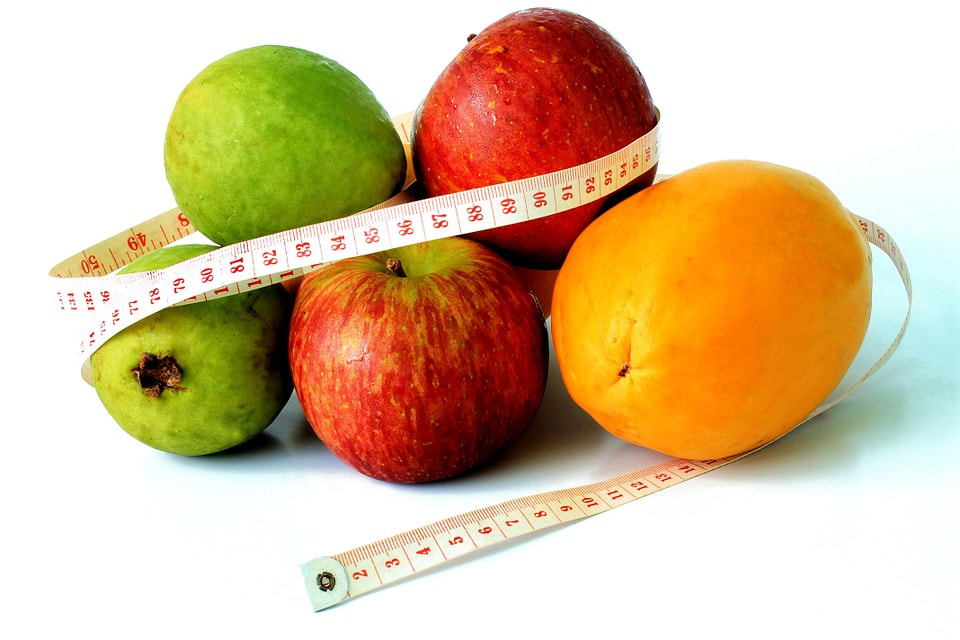
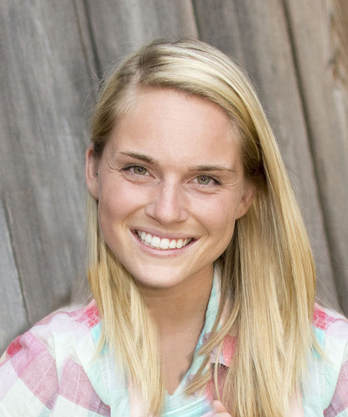

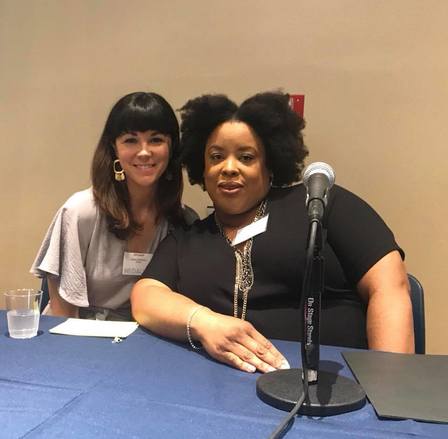

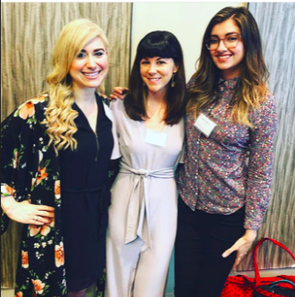



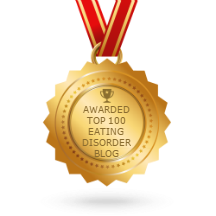
 RSS Feed
RSS Feed
